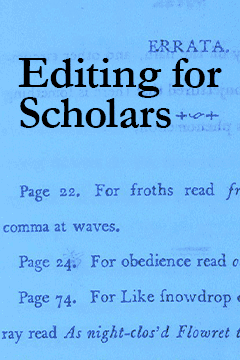The Beer Summit
The Beer Summit
Nicolaus Mills on the Beer Summit
FROM THE New York Times to the Boston Globe, papers across the country have stressed that when Harvard professor Henry Louis Gates Jr. and Cambridge police sergeant James Crowley met for their beer summit at the White House on Thursday, neither apologized for the events that led to Gates’s arrest.
Reporters seemed disappointed that they did not have competing apologies to compare. When it came to contrasts, they were stuck with talking about the fact that the president drank a Bud Light, Crowley a Blue Moon, and Gates a Sam Adams Light. But Gates and Crowley’s insistence on not rehashing a confrontation both obviously regret (why else show up at the White House?) is precisely what made their beer summit a success. These days the surest way to stop racial progress is through endless discussions of past grievances.
In 1997, President Bill Clinton sought to go the grievance route with a “national conversation on race,” and his effort fell flat. A forum on race in which Clinton debated conservative political scientist Abigail Thernstrom at the University of Akron ended with the two talking past each other; and in succeeding years, such public talks on race have proved similarly inconclusive. These days television news programs love to hold conversations on race, which give them a chance to pair political opposites (the Reverend Al Sharpton v. Ann Coulter, for example), and colleges and universities like to win points for being politically correct by holding racial sensitivity seminars in which a trainer (usually a psychologist of some sort) gets students to own up to their “hidden” inner prejudices before sending them back to the classroom.
To their credit, Gates and Crowley wanted no part of a phony mea culpa fest. “I am hopeful that we can all move on, and that this experience will prove an occasion for education, not recrimination,” Gates observed in The Root, the online magazine he edits. In a fifteen-minute news conference he held following their White House meeting, Sergeant Crowley made the same point. “We didn’t spend too much time dwelling on the past, and we decided to look forward,” he declared.
Gates and Crowley implicitly recognized, as President Obama has from the start of his campaign in 2008, that the only real way to make racial progress these days is to focus on concrete steps that will make life better for blacks and whites in this country. The high rates of incarceration, unemployment, and high school dropout among blacks won’t be helped by discussions that turn into predictable victomology sessions. Needed instead are programs that blacks and whites can agree on that will actually lessen the racial and class inequities that persist in America.
Forty-five years ago the 1964 Mississippi Freedom Summer showed how ordinary people can begin to deal with such problems. In that year, black and white volunteers, the majority of them students, descended on Mississippi to help register black voters in the most segregated and racially violent state in the country. The volunteers, three of whom were murdered at the start of Freedom Summer, not only changed Mississippi but by their example helped make possible the Civil Rights Act of 1964 and the Voting Rights Act of 1965.
We are a long way from the sixties. But we need to bear in mind—as Gates and Crowley have—that then, as now, concrete undertakings like the Mississippi Summer Project succeed because of people who ask, “What can I do?” rather than dwell on, “What hurts am I carrying inside me?”
Gates and Crowley have promised to get together soon. It is a meeting for all of us to look forward to, especially the president, who has gotten out from under a controversy in which a survey by the Pew Research Center for the People & the Press showed that two-thirds of those questioned disapproved of the way he handled the incident when he first declared the Cambridge police acted “stupidly.”
Nicolaus Mills, a professor of American Studies at Sarah Lawrence College, is author of Like a Holy Crusade: Mississippi 1964–The Turning of the Civil Rights Movement in America. Photo: President Barack Obama, Henry Louis Gates Jr., and James Crowley in the Rose Garden (Pete Souza / White House)




